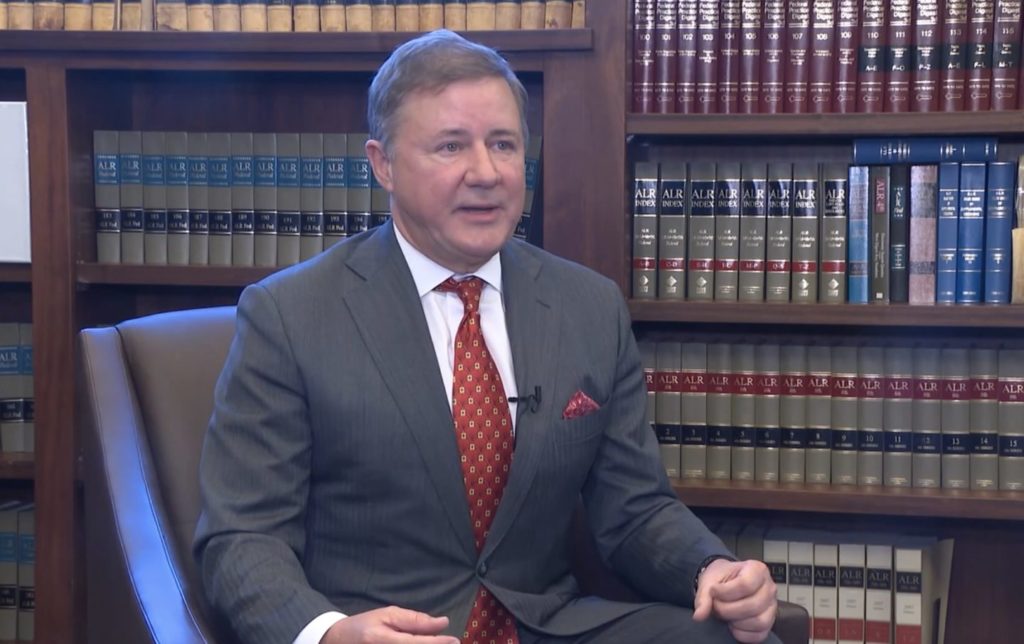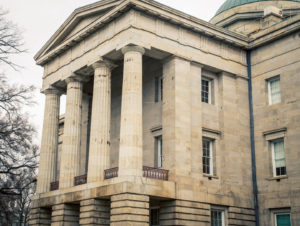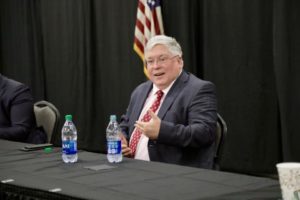Oklahoma Supreme Court hears initial arguments in historic Catholic charter school case
The Oklahoma Supreme Court heard initial arguments on Tuesday over what would be the nation’s first ever religious charter school.
The St. Isidore of Seville Catholic Virtual School was…

The Oklahoma Supreme Court heard initial arguments on Tuesday over what would be the nation’s first ever religious charter school.
The St. Isidore of Seville Catholic Virtual School was approved by the Oklahoma Statewide Virtual Charter School Board in October, but a lawsuit from state Attorney General Gentner Drummond is attempting to stop it.
Public charter schools have always had more freedom to innovate and specialize than their traditional, government-operated counterparts, but they are still considered “public schools” since they are funded by tax dollars and legally mandated to accept all students.
St. Isidore would be the first instance of an explicitly religious charter school, raising questions about its legality.
The case – Drummond v. Oklahoma Statewide Virtual Charter School Board, et al – essentially boils down to a single question: To what extent is the St. Isidore Virtual School a public entity, and does its state-issued charter contract equate to an “establishment of religion”?
At the hearing on Tuesday, Drummond presented arguments for the separation of church and state, focusing on the Establishment Clause of the First Amendment and Article II Section 5 of the Oklahoma State Constitution, which states:
“No public money or property shall ever be appropriated, applied, donated, or used, directly or indirectly, for the use, benefit, or support of any sect, church, denomination, or system of religion…”.
This section is one of many Blaine Amendments which appear in various state constitutions.
Blaine Amendments are a relic of 19th-century anti-immigrant and anti-Catholic bigotry, specifically designed to stifle private Catholic schools.
However, recent U.S. Supreme Court rulings have undermined the legal foundation for such religious discrimination.
A trilogy of decisions – Trinity v. Comer, Espinoza v. Montana and Carson v. Makin – found it unconstitutional for private, religious institutions to be excluded from public funding purely due to their religious status.
The same logic has validated school choice programs, which allow students to take public education dollars to the private and parochial schools of their choice.
But Drummond argued St. Isidore is a different situation.
He said that in granting St. Isidore a charter school contract, the group became a government actor. Since the school’s goal is to provide a Catholic education, it cannot do so as a state actor without violating the Establishment Clause, he claimed.
Phil Sechler, senior counsel at Alliance Defending Freedom (ADF), represented St. Isidore before the Oklahoma Supreme Court and argued St. Isidore does not violate the First Amendment.
He noted the group is privately owned and operated and said receiving a charter contract did not make the group a state actor.
Sechler cited Rendell-Baker v. Kohn, a U.S. Supreme Court decision from 1982, which found a private school wasn’t a state actor even if “substantially funded and regulated by the state.”
According to state law, public schools are defined as “all free schools supported by public taxation” and aren’t inherently state actors, Sechler continued.
Rather than being an “establishment of religion,” St. Isidore is merely exercising its right to religious freedom by participating in the state’s charter school program – a benefit which many secular groups also receive.
Despite the legal uncertainty, St. Isidore has opened applications for the 2024-25 school year, and Drummond said during the court hearing over 200 students have already applied.
Both Oklahoma Gov. Kevin Stitt and Superintendent of Public Instruction Ryan Walters have expressed strong support for the Catholic charter.
Previously, Drummond claimed allowing a Catholic charter school could open the door to other sectarian institutions less palatable to the American public.
“Today, Oklahomans are being compelled to fund Catholicism. Because of the legal precedent created by the Board’s actions, tomorrow we may be forced to fund radical Muslim teachings like Sharia law,” Drummond said.
“The Governor of course is free to support the establishment and funding of a Muslim charter school if he wants, but as a committed Christian, I take deep offense to that position,” the attorney general continued. “I am doing everything in my power to protect our tax dollars and preserve our religious liberty.”
Drummond also indicated he would appeal to the U.S. Supreme Court if Oklahoma’s Justices decided against him.
Meanwhile, Sechler and ADF said the decision was as much about improving education as it was about religious freedoms.
“Oklahoma parents and children are better off with more choices, not fewer,” Sechler said in a press release prior to the hearing. “The U.S. Constitution and Oklahoma’s Religious Freedom Act both protect St. Isidore’s freedom to operate according to its faith and support the boards’ decision to approve such learning options for Oklahoma families.
“We urge the state’s high court to reject this legal challenge that discriminates against religion and affirm the constitutionally protected rights of religious groups to be treated the same as their secular counterparts.”



